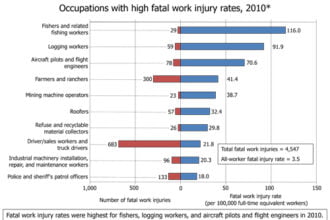One would think that a physician who earns his living billing patients would be conversant with the prices of his services. Not this doctor.
One would think that a physician who earns his living billing patients would be conversant with the prices of his services. Not this doctor. I am queried periodically by patients asking how much I charge for a colonoscopy. Of course, every physician recognizes that this question is not phrased properly. It doesn’t matter what we charge; it’s what an insurance company determines we will be paid. I might believe that your colonoscopy was worth a thousand bucks, but those who pay the bill have a different sense of its value. Many ordinary folks think that we doctors can simply raise our prices to enrich ourselves. Physicians cannot do this. The hardware store and the supermarket can raise prices in response to rising overhead and market forces, but we physicians cannot. While I realize that the public does not sympathize with physicians who are lumped in with the 1%, a pejorative term popularized by the Occupy movement.
The reality is that many private medical practices are struggling financially and have closed. Many of these practitioners have retired and others have become physician employees. Our practice in the Cleveland suburbs is feeling the squeeze and I cannot estimate how long we will remain viable. Personally, I believe that private medicine is being targeted by design, and when it becomes extinct, the public will lose an important health care resource. While I am not opining that private practice is the only model that can offer high quality medical care, I maintain that when the physician is also a business owner, that he has a strong incentive to satisfy his patients and his referring physicians. Employed physicians are given incentives, which are metrics that reward or punish them depending upon how the measure up on various ‘quality’ schema. Throughout this blog, I have railed against pay-for-performance and its cousins which claim to measure medical quality, but will fail in the mission. It’s like assessing the quality of a chef’s culinary creation by weighing the plate of food. Get the point?
Pay-for-Performance is in the lowest tier of the bottom 99% of quality control measurment. It was not designed to increase medical quality, but to control costs, which is a legitimate goal. At least have the guts to say so out loud.
I don’t have a clue what a colonoscopy costs. This is partially because I have never been interested in the business of medicine. However, colonoscopies are like airline tickets; no two passengers pay the same fare. Insurance companies have different rates. If we obtain biopsies or use a nurse anesthetist to administer the Michael Jackson juice before colonoscopic take-off, then there will be additional charges that cannot be firmly stated in advance.
When I do see what we are paid for a colonoscopy, it certainly doesn’t seem exorbitant considering the years of physician training and experience we have, the outstanding nursing care we provide, the immaculate and modern facility and equipment we use and our devotion to providing the highest quality service possible.
Who can put a price on an experience like this? Not us.








